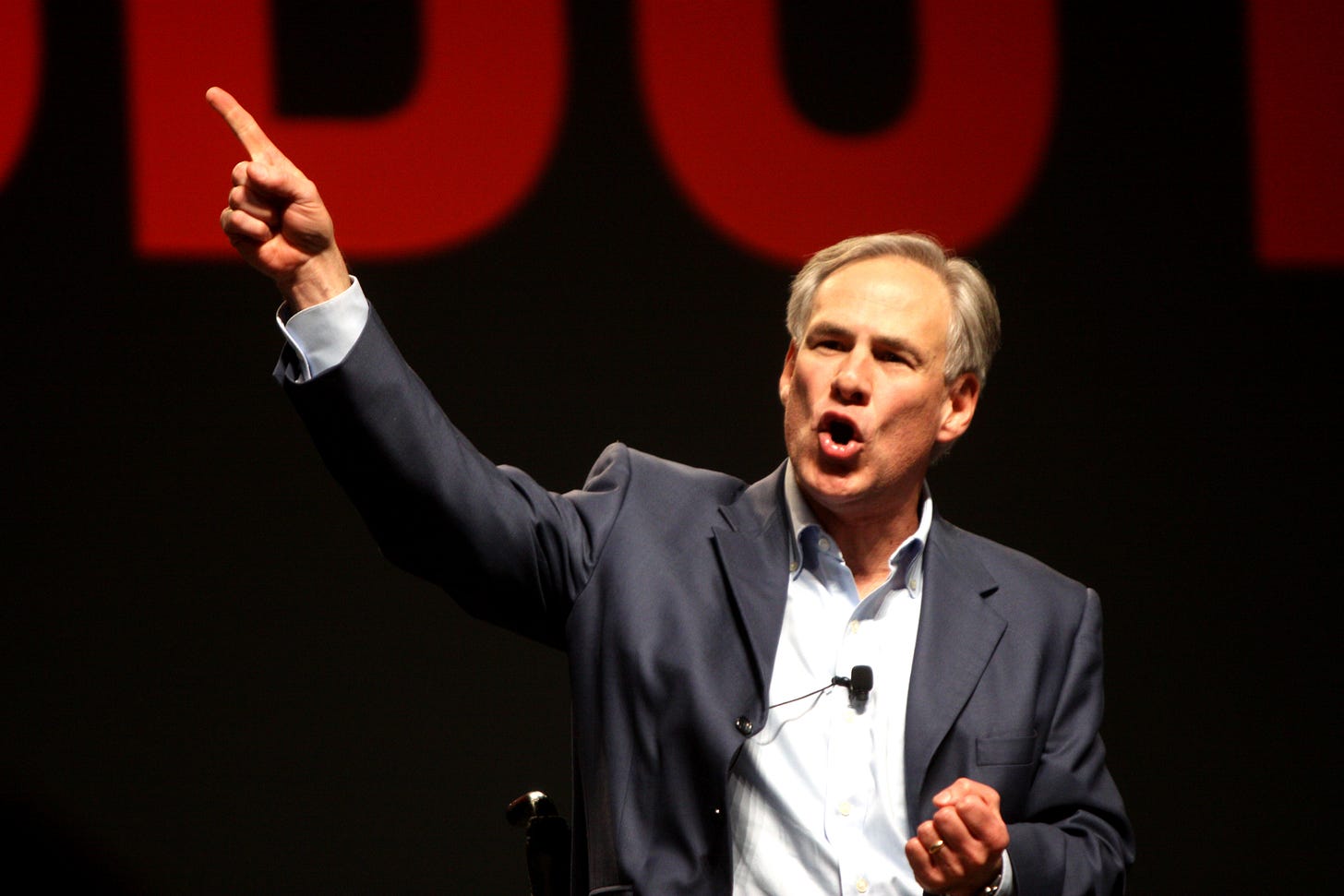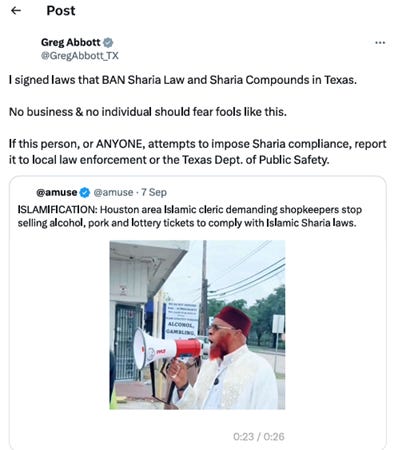Texas Governor Greg Abbott has intensified his opposition to Islamic law implementation in the state, urging residents to report any attempts to impose Sharia compliance following a viral video of a Houston imam demanding local Muslim shop owners stop selling alcohol, pork, and lottery tickets.
The Republican governor posted on social media platform X on September 8, declaring that he has "signed laws that BAN Sharia Law and Sharia Compounds in Texas," according to multiple news outlets, including the Houston Chronicle and Sahara Reporters. Abbott called for immediate reporting of any Sharia enforcement attempts to local law enforcement or the Texas Department of Public Safety.
Viral Video Sparks Statewide Response
The controversy erupted after videos circulated online showing Imam F. Qasim ibn Ali Khan of Masjid At-Tawhid in Houston confronting Muslim-owned businesses about selling products forbidden under Islamic law. The imam, affiliated with the Nation of Islam, warned shopkeepers they had 30 days to comply or face public demonstrations.
"We're just getting started. In 30 days, we're going city-wide," Khan told one store clerk in the viral footage, according to The Daily Wire.
Khan's campaign involves visiting Muslim-owned stores and demanding they remove what he considers "haram" (forbidden) items from their inventory, including alcohol, pork products, and gambling materials. His mosque flies a Palestinian flag and employs private security personnel in uniforms resembling local police.
Legal Framework Already in Place
Abbott's response draws on existing Texas legislation rather than new bans. In 2017, Texas passed House Bill 45, known as the "American Laws for American Courts" act, which prohibits Texas courts from applying foreign laws in family law cases if they violate constitutional rights, according to Yahoo News fact-checking.
The 2017 law does not explicitly mention Sharia but addresses any foreign legal system that conflicts with constitutional protections. Legal experts note that no U.S. courts have ever applied criminal aspects of Islamic law, as doing so would violate the Constitution's Supremacy Clause.
EPIC City Investigation Continues
Abbott's statement coincides with ongoing state investigations into the East Plano Islamic Center's proposed EPIC City development near Dallas. The governor announced in March 2025 that multiple state agencies were investigating the planned 1,000-home Muslim-majority community for potential violations of securities, housing, and environmental laws.
The federal Department of Justice recently closed its investigation into EPIC City, finding no violations of federal law, according to Middle Tennessee State University's First Amendment Encyclopedia. However, state-level probes continue under Attorney General Ken Paxton's office.
"This is America. We don't bend the law for imported ideologies," Abbott wrote in connection to the EPIC City investigations, as reported by The Daily Wire.
Civil Rights Groups Push Back
The Council on American-Islamic Relations (CAIR) criticized Abbott's social media posts as "fearmongering about Islam". It urged the governor to visit Texas mosques to gain a better understanding of Islamic principles, according to the Houston Chronicle.
"Governor Abbott should visit one of the many mosques across Texas to learn about what sharia really is," a CAIR spokesperson stated. "In the meantime, he should know that the Texas Muslim community fears God, not dishonest fearmongering from politicians who understand Islam about as well as they understand the First Amendment."
CAIR emphasized that Sharia provides Muslims with moral guidance in matters of worship, charity, and business ethics, but "is not a criminal code and poses no threat to American law," according to The New Arab's reporting on similar controversies.
Political Context and Criticism
Critics have accused Abbott of political grandstanding, particularly as the controversy erupted just days before the 24th anniversary of the September 11 attacks. Journalist Amy Mek criticized the governor's timing on social media, stating, "I broke this story weeks ago, and you stayed silent. Now that others have picked it up and it's being amplified, you're only speaking out because you've been backed into a corner."
The timing has drawn parallels to broader anti-Muslim sentiment in Texas politics, with Democrats like State Representative Salman Bhojani calling such rhetoric divisive and un-American.
Constitutional and Political Implications
As investigations into EPIC City continue and the Houston imam's campaign potentially expands, the controversy highlights ongoing tensions between religious freedom and state authority in Texas. The governor's stance reflects a broader national debate about multiculturalism, religious accommodation, and the boundaries of constitutional protection.
Legal experts emphasize that existing U.S. law already prohibits any religious legal system from superseding constitutional rights, making additional state legislation largely symbolic. The controversy underscores how local religious disputes can escalate into statewide political flashpoints, particularly in an era of heightened political polarization around immigration and religious diversity issues.




